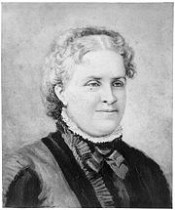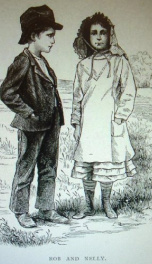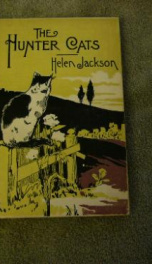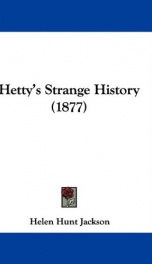Jackson Helen Hunt

Helen Maria Hunt Jackson (October 18, 1830 – August 12, 1885) was an American writer best known as the author of Ramona, a novel about the ill treatment of Native Americans in southern California.[1][2] She was born in Amherst, Massachusetts, a daughter of Nathan Welby Fiske and Deborah Waterman Vinal. She had two brothers, both of whom died after birth, and a sister named Anne. Her father was a minister, author, and professor of Latin, Greek, and philosophy at Amherst College. Her mother died in 1844, and her father died three years later in 1847, leaving her to the care of an aunt. Before her father's death, however, he saw to it that she had a good education. She attended Ipswich Female Seminary and the Abbott Institute, a boarding school run by Reverend J.S.C. Abbott in New York City. She was a classmate of the poet Emily Dickinson, also from Amherst. The two carried on a correspondence for all of their lives, but few of their letters have survived. In 1852, Helen Fiske married United States Army Captain Edward Bissell Hunt, who died in a military accident in 1863. Her son Murray Hunt died in 1854 of a brain disease; her other son, Rennie Hunt, died of diphtheria in 1865. She began writing after these deaths. She traveled a great deal. In the winter of 1873-1874 she was in Colorado Springs, Colorado, in search of a cure for tuberculosis. There she met William Sharpless Jackson, a wealthy banker and railroad executive. They married in 1875.[3] Over the next two years, she published three novels in the anonymous No Name Series, Mercy Philbrick's Choice and Hetty's Strange History,[4] before turning her attention to novels about Native Americans. She died of stomach cancer in 1885. Scholars know her as Helen Hunt Jackson, but she never used that name herself—she only used one married name at a time: Helen Hunt or Helen Jackson. In 1879 her interests turned to the plight of the Native Americans after attending a lecture in Boston by Ponca Chief Standing Bear, who described the forcible removal of the Ponca Indians from their Nebraska reservation. Upset over what she heard regarding the treatment of Native Americans by government agents, Jackson became an activist. She started investigating and publicizing government misconduct, circulating petitions, raising money, and writing letters to The New York Times on behalf of the Ponca. A fiery and prolific writer, Jackson engaged in heated exchanges with federal officials over the injustices and atrocities committed against Indians. Among her special targets was U.S. Secretary of Interior Carl Schurz, whom she once called "an adroit liar." She exposed the wanton violation of Indian treaties and the manner in which unscrupulous Indian agents, military officers, and settlers encroached on and stole Indian lands. She won the support of several newspaper editors who published her reports. Among her correspondents were editor Willliam Hayes Ward of the New York Independent, Richard Watson Guilder of the Century Magazine, and publisher Whitelaw Reid of the New York Daily Tribune.[5] Jackson also started a book condemning the state and federal Indian policy, as well as the history of broken treaties. Because she was in poor health at the time, she wrote with desperate haste. A Century of Dishonor, calling for significant reform to government policy towards Native American Indians, was published in1882.[6] Jackson then sent a copy to every member of Congress with an admonishment printed in red on the cover, "Look upon your hands: they are stained with the blood of your relations." But, to her disappointment, the book had little impact. She then went to southern California to take a much needed rest. She had become interested in the area's missions and the Mission Indians on an earlier visit, and now she began an in-depth study. While in Los Angeles, California, she met Don Antonio Coronel, a former mayor and city councilman who had also served as State Treasurer. He was a well-known authority on early Californio life in the area and was also a former inspector of missions for the Mexican government. Don Antonio described to Jackson the plight of the Mission Indians after 1833, when secularization policies led to the sale of mission lands and the dispersal of their residents. Many of the original Mexican land grants had clauses protecting the Indians on the lands they occupied. But when Americans assumed control of the southwest after the Mexican-American War, they ignored Indian claims to these lands, which led to mass dispossessions. In 1852, there were an estimated fifteen thousand Mission Indians in Southern California. But, because of the adverse impact of dispossessions by Americans, by the time of Jackson's visit they numbered less than four thousand. The stories told by Don Antonio spurred Jackson into action. Her efforts soon came to the attention of the U.S. Commissioner of Indian Affairs, Hiram Price, who recommended she be appointed an Interior Department agent. Jackson's assignment was to visit the Mission Indians and ascertain the location and condition of various bands, and determine what lands, if any, should be purchased for their use. With the help of Indian agent Abbot Kinney, Jackson criss-crossed Southern California and documented the appalling conditions she saw. At one point, she hired a law firm to protect the rights of a family of Saboba Indians facing dispossession of their land at the foot of the San Jacinto Mountains. During this time, Jackson read an account in a Los Angeles newspaper about a Cahuilla Indian who had been shot and killed. His wife, it turned out, was named Ramona. On one excursion, Jackson was escorted by wagon to Santa Barbara and stopped off at Rancho Camulos in the Santa Clara River Valley, where she visited the adobe of the del Valle family. But the Señora del Valle was not home the day Jackson was there. And at the Mission Santa Barbara, Jackson made the acquaintance of Father Sanchez, a source of great inspiration. In 1883, she completed her fifty-six page report,[7] which called for a massive government relief effort ranging from the purchase of new lands for reservations to the establishment of more Indian schools. A bill embodying her recommendations passed the U.S. Senate but died in the House of Representatives. Jackson, however, was not discouraged by this Congressional rejection. She decided to write a novel that would depict the Indian experience "in a way to move people's hearts." An inspiration for the undertaking, Jackson admitted, was Uncle Tom's Cabin written years earlier by her friend, Harriet Beecher Stowe. "If I can do one-hundredth part for the Indian that Mrs. Stowe did for the Negro, I will be thankful," she told a friend. Jackson was particularly drawn to the fate of her Indian friends in the Temecula area of Riverside County and decided to use the story of what happened to them in her novel. She began writing the outline for her novel while staying at the Grapevine Inn in San Gabriel, but it wasn't till December 1883 that she actually started to write the novel in her New York hotel room, with an original title of In The Name of the Law, and completed the manuscript in slightly over three months. The result was her classic novel Ramona about a part-Indian orphan raised in Spanish Californio society and her Indian husband, Alessandro, which was published in November 1884 and achieved almost instant success. Written at a breezy, ninth-grade level, it was accessible to students as well as the general public. Encouraged by the popularity of her book, Jackson planned to write a children's story on the Indian issue. But less than a year after the publication of Ramona, while she was examining the condition of the California Indians as a special government commissioner, she died of cancer in San Francisco, California. Her last letter was written to President Grover Cleveland, urging him to read her early work A Century of Dishonor. Speaking to a friend, Jackson said, "My Century of Dishonor and Ramona are the only things I have done of which I am glad. They will live and bear fruit." The novel was seen more as a romantic love story than as a tract of political reform. Ramona has gone through countless editions and is still in print along with A Century of Dishonor and many of her books of poetry. The story of Ramona has been staged in a play and three films, which featured Mary Pickford, Dolores del Río, Loretta Young, and Don Ameche. Each year, the city of Hemet stages The Ramona Pageant, an outdoor play based on Jackson's novel. Biographer Valerie Sherer Mathes writes: "Ramona may not have been another Uncle Tom's Cabin, but it served, along with Jackson's writings on the Mission Indians of California, as a catalyst for other reformers....[8] Helen Hunt Jackson cared deeply for the Indians of California. She cared enough to undermine her health while devoting the last few years of her life to bettering their lives. Her enduring writings, therefore, provided a legacy to other reformers, who cherished her work enough to carry on her struggle and at least try to improve the lives of America's first inhabitants."[9] Her grave is in Evergreen Cemetery, Colorado Springs, Colorado [10] The Helen Hunt Jackson Branch is a Mission/Spanish Revival style building built in 1925 as a branch of the Los Angeles Public Library; it is listed on the National Register of Historic Places. The largest collection papers of Helen Hunt Jackson are held in a special collection at Colorado College.[11] Helen Hunt Jackson's name is used as the name of a high school in Hemet, California, and an elementary school in Temecula.[12]
do you like this author?
What readers are saying
What do you think? Write your own comment on this book!
write a commentWhat readers are saying
What do you think? Write your own comment on this author!
write a commentBook list

Mammy Tittleback and Her FamilyA True Story of Seventeen Cats
Series:
Unknown
Year:
Unknown
Raiting:
4.5/5
Show more
add to favoritesadd In favorites

nellys silver mine a story of colorado life
Series:
Unknown
Year:
Unknown
Raiting:
2/5
Nelly and her twin brother were twelve years old and living in Mayfield, Coneticut with their mother and father. It's Christmas time, her brother Rob has always been sickly and her father suffers from asthema. Her parents have been talking about moving to a healthier climate out in Colorado and soon it is agreed by all to move there. The time is the 1870's and this story gives the reader a good look at travel and conditions experienced in those days. There are heartwarming friendships developed along the way and a great deal of adventure. Especially when Nelly gets it in her mind to find a silver mine to help out her father and mother. This book was written I believe as a children's book, maybe ages ten to thirteen or so, but I'm a long way from childhood and I enjoyed it very much.
Show more
add to favoritesadd In favorites
Book list

Mammy Tittleback and Her FamilyA True Story of Seventeen Cats
Series:
Unknown
Year:
Unknown
Raiting:
4.5/5
Show more
add to favoritesadd In favorites

nellys silver mine a story of colorado life
Series:
Unknown
Year:
Unknown
Raiting:
2/5
Nelly and her twin brother were twelve years old and living in Mayfield, Coneticut with their mother and father. It's Christmas time, her brother Rob has always been sickly and her father suffers from asthema. Her parents have been talking about moving to a healthier climate out in Colorado and soon it is agreed by all to move there. The time is the 1870's and this story gives the reader a good look at travel and conditions experienced in those days. There are heartwarming friendships developed along the way and a great deal of adventure. Especially when Nelly gets it in her mind to find a silver mine to help out her father and mother. This book was written I believe as a children's book, maybe ages ten to thirteen or so, but I'm a long way from childhood and I enjoyed it very much.
Show more
add to favoritesadd In favorites

letters from a cat published by her mistress for the benefit of all cats and t
Series:
Unknown
Year:
Unknown
Raiting:
5/5
Show more
add to favoritesadd In favorites

glimpses of three coasts
Series:
Unknown
Year:
Unknown
Raiting:
3/5
Purchase of this book includes free trial access to www.million-books.com where you can read more than a million books for free. This is an OCR edition with typos. Excerpt from book: ECHOES IN THE CITY OF THE ANGELS. The tale of the founding of the city of Los Angeles is a tale for verse rather than for prose. It reads like a page out of some new " Earthly Paradise," and would fit well into song such as William Morris has sung. It is only a hundred years old, however, and that is not time enough for such song to simmer. It will come later, with the perfume of century-long summers added to its flavor. Summers century-long? One might say a stronger thing than that of them, seeing that their blossoming never stops, year in nor year out, and will endure as long as the visible frame of the earth. , The twelve devout Spanish soldiers who founded the city named it at their leisure with a long name, musical as a chime of bells. It answered well enough, no doubt, for the first fifty years of the city's life, during which not a municipal record of ajiy sort or kind was written, "Nuestra Senora Reina de los Angeles," "Our Lady the Queen of the Angels ; " and her portrait made a goodly companion flag, unfurled always by the side of the flag of Spain. There is a legend, that sounds older than it is, of the ceremonies with which the soldiers took possession of their new home. They were no longer young. They had fought for Spain in many parts of the Old World, and followed her uncertain fortunes to the New. Ten years some of them had been faithfully serving Church and King in sight of these fair lands, for which they hankered, and with reason. In those days the soft, rolling, treeless hills and valleys, between which the Los Angeles River now takes its shillyshallying course seaward, were forest slopes and meadows, with lakes great and small. This abundance of trees, with shining waters playing among them, added to the limitless bloom of the plains and the s... --This text refers to the Paperback edition.
Show more
add to favoritesadd In favorites

cat stories
Series:
Unknown
Year:
Unknown
Raiting:
4/5
CAT STORIES - BY HELEN JACKSON - 1886 - INTRODUCTION - DO not feel wholly wrote these letters the letters written to me by my marnrna, or other friends, and I never caught Pussy writing at any time when I was at home but the printing was pretty bad, and they were signed by PUS name and my rnarnma a w s looked very mysterious when I asked about them, as if there were sotne very great secret about it all so that until I grew to be a big girl, I never doubted but that Pussy printed them all alone by herself, after dark. They were written when I was a very little girl, and was away from home with my father on a journey. We made this journey in our own carriage, and it was one of the pleasantest things that ever happened to me. My clothes and my fathers were packed in a little leather valise which was hung by straps underneath the carriage, and went swinging, swinging, back and forth, as the wheels went round. My father and I used to walk up all the steep hills, because old Charley, our horse, was not very strong and I kept my eyes on that valise all the while I was walking behind the car- riage it seemed to me the most unsafe way to carry a valise, and I wished very much that my best dress had been put in a bundle that I could carry in my lap. This was the only drawback on the pleasure of my journey, my fear that the valise would fall off when we did not know it, and be left in the road, and then 1 should not have anything nice to wear when reached my aunts house. But the valise went through all safe, and I had the satisfaction of wearing my best dress every afternoon while I stayed and I was foolish enough to think a great deal of this. On the fourth day after our arrival came a letter from my mamma, giving me a great many directions how to behave, and enclosing this first letter from Pussy. I carried both letters in my apron pocket all the time. They were the first letters I ever had received, and I was very proud of them. I showed them to everybody, and everybody laughed hard at Pussys, and aslced me if I believed that Pussy printed it hcrself. I thought perhaps.......... --This text refers to the Paperback edition.
Show more
add to favoritesadd In favorites

bits of travel at home
Series:
Unknown
Year:
Unknown
Raiting:
3.5/5
This volume is produced from digital images created through the University of Michigan University Library's preservation reformatting program. The Library seeks to preserve the intellectual content of items in a manner that facilitates and promotes a variety of uses. The digital reformatting process results in an electronic version of the text that can both be accessed online and used to create new print copies. This book and thousands of others can be found in the digital collections of the University of Michigan Library. The University Library also understands and values the utility of print, and makes reprints available through its Scholarly Publishing Office.
Show more
add to favoritesadd In favorites

bits of travel
Series:
Unknown
Year:
Unknown
Raiting:
4/5
Purchase of this book includes free trial access to www.million-books.com where you can read more than a million books for free. This is an OCR edition with typos. Excerpt from book: THE AMPEZZO PASS AND THE HOUSE OF THE STAR OF GOLD. OUR month's voyage of Venice had come to an , end. We had said so many times to each other in the mornings, " We must go," that the meaningless declaration had come to be received with bursts of laughter, and nobody dared say it any more. Nevertheless it was true: people who meant to summer in the Tyrol must not spend the whole of June in Venice. Silent, sad, beautiful Venice, how did our eyes dins; to .' thy spires, as looking backward from the railway carriage we saw them slowly go down in the pale water. That one can leave Venice by rail seems the most incredible thing in life. At the first turn of the wheels and snort of the engine we began to doubt whether the city had been real; the first sight of green land was bewildering; and when at the first station we saw wheeled carriages waiting for people, we were struck dumb. What a gigantic and agile creature did the horse appear! and what a marvel of beautiful solidity the level earth, brown under foot, and full of locust hedges and pink-blossomed trees! It is no small proof of the subtile spell of that wonderful city of water and stone, slowly sinking at anchor, that one month's life on its bosom is enough to make all other living seem unnatural. We even felt dull misgivings about the Tyrol, and the dolomite mountains of the grand Ampezzo Pass through which we were to pass to reach it. Nevertheless, " Ampezzo Pass " was so stamped upon our whole bearing, that, as soon as we stepped out of thecarriage at Conesrliano, we were taken possession of by screaming vetturini, each man of whom possessed the very best carriage and the very best horses, and was himself the very best guide in Conegliano! 0 the persistence, the superhuman persistence, of an Italian with a hope o...
Show more
add to favoritesadd In favorites

bits of talk in verse and prose for young folks
Series:
Unknown
Year:
Unknown
Raiting:
4/5
Show more
add to favoritesadd In favorites

bits of talk about home matters
Series:
Unknown
Year:
Unknown
Raiting:
3/5
This volume is produced from digital images created through the University of Michigan University Library's preservation reformatting program.
Show more
add to favoritesadd In favorites

a century of dishonor a sketch of the united states governments dealings with
Series:
Unknown
Year:
Unknown
Raiting:
5/5
This book written on political topic covers the peculiarities of the relationship between the American Congress and the American Indian tribes. As the author Helen Jackson reveals herself, the book of hers is an attempt to make ordinary Americans think about the problem touching the American Indians who were experiencing the pressure from the government. She called everyone upon demanding legislative reform from the Congress. The book will appeal to everyone who is interested in American history, particularly the part of it connected to the American Indians.
Show more
add to favoritesadd In favorites
Show more

Mercy Philbrick's Choice
Series:
Unknown
Year:
Unknown
Raiting:
3/5
It was late in the afternoon of a November day. The sky had worn all day that pale leaden gray color which is depressing even to the least sensitive of souls. --This text refers to the Paperback edition.
Show more
add to favoritesadd In favorites

The Hunter Cats of Connorloa
Series:
Unknown
Year:
Unknown
Raiting:
2.5/5
Many of the earliest books, particularly those dating back to the 1900s and before, are now extremely scarce and increasingly expensive. We are republishing these classic works in affordable, high quality, modern editions, using the original text and artwork.
Show more
add to favoritesadd In favorites

Hetty's Strange History
Series:
Unknown
Year:
Unknown
Raiting:
4.5/5
First published anonymously in 1877 in the "No Name Series". --This text refers to an alternate Paperback edition.
Show more
add to favoritesadd In favorites

A Calendar of Sonnets
Series:
Unknown
Year:
Unknown
Raiting:
3.5/5
This scarce antiquarian book is included in our special Legacy Reprint Series. In the interest of creating a more extensive selection of rare historical book reprints, we have chosen to reproduce this title even though it may possibly have occasional imperfections such as missing and blurred pages, missing text, poor pictures, markings, dark backgrounds and other reproduction issues beyond our control. Because this work is culturally important, we have made it available as a part of our commitment to protecting, preserving and promoting the world's literature. --This text refers to an alternate Paperback edition.
Show more
add to favoritesadd In favorites
What readers are saying
What do you think? Write your own comment on this author!
write a commentif you like Jackson Helen Hunt try:
readers also enjoyed
What readers are saying
What do you think? Write your own comment on this author!
write a commentGenre
if you like Jackson Helen Hunt try:
readers also enjoyed
Do you want to read a book that interests you? It’s EASY!
Create an account and send a request for reading to other users on the Webpage of the book!

